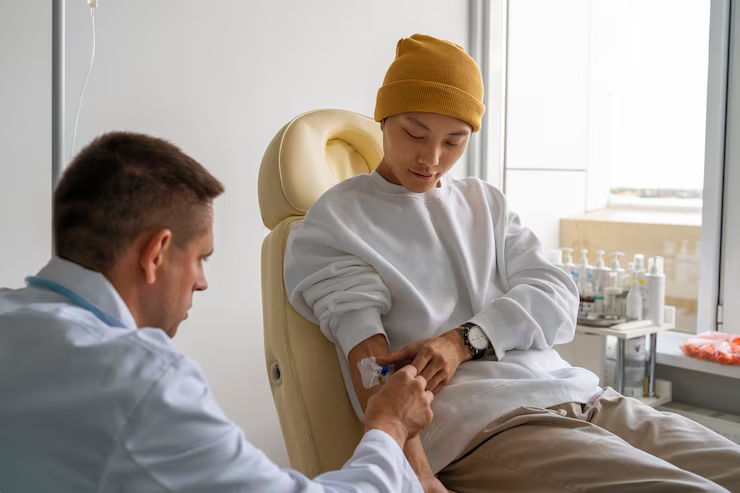303-484-9756
Sign up & get 10% OFF your first treatment order
Hormone Optimization, Weight Loss Management, Sexual Health, Longevity & Wellness
Unlock Your Potential for a Life Without Limits: Experience the Pinnacle of Personalized Performance and Wellness.


🧪 Hormone Replacement Therapy
🔻 Low Testosterone Treatment
💖 Optimal Health & Wellness
⚖️ Weight Management Solutions
👨⚕️ Personalized Medical Care
🚹 Men’s Sexual Health
💉 IV Therapy
🏥 The Right Services for Your Health Needs
About Us
Feel Like the Younger Version of Yourself
Our clinic offers exceptional care from highly qualified medical providers. You can get clinically backed treatments and guided support in one place.
At Revive MD we’re proud to be a premier wellness center and rejuvenation clinic in both Denver and Fort Collins, helping patients like you look and feel like your optimal selves as you get older.
We specialize in several key areas of treatment, including: muscle growth and repair, hormone replacement therapy for men and women, sexual enhancement, medical weight loss, and other regenerative medicine solutions.
Weight Loss for Men
Men's weight loss is about more than just cutting calories—it's about optimizing metabolism, building muscle, and maintaining energy levels. Testosterone levels, muscle mass, and lifestyle choices all impact how efficiently the body burns fat. A combination of strength training, cardiovascular exercise, and a protein-rich diet can accelerate weight loss while preserving muscle. Additionally, managing stress and getting quality sleep play a crucial role in regulating hormones and preventing weight gain. A tailored approach ensures long-term success, boosting both physical health and confidence.


Weight Loss for Men
Men's weight loss is about more than just cutting calories—it's about optimizing metabolism, building muscle, and maintaining energy levels. Testosterone levels, muscle mass, and lifestyle choices all impact how efficiently the body burns fat. A combination of strength training, cardiovascular exercise, and a protein-rich diet can accelerate weight loss while preserving muscle. Additionally, managing stress and getting quality sleep play a crucial role in regulating hormones and preventing weight gain. A tailored approach ensures long-term success, boosting both physical health and confidence.

Hormone Replacement
Hormone Replacement Therapy (HRT) helps restore balance to the body's natural hormone levels, addressing issues like fatigue, mood swings, weight gain, and low libido. As we age, hormone production declines, leading to various health concerns. HRT, whether through bioidentical hormones, injections, or other methods, can improve energy, metabolism, and overall well-being. A personalized treatment plan ensures optimal results, helping individuals regain vitality and maintain a healthier lifestyle.

Men’s Sexual Health
Men’s sexual health is essential for overall well-being, confidence, and quality of life. Factors like aging, hormonal imbalances, stress, and lifestyle choices can impact libido, stamina, and performance. Treatments such as testosterone therapy, medications, and lifestyle modifications can help restore vitality and improve intimate health. Addressing concerns early with tailored solutions ensures long-term benefits, enhancing both physical and emotional well-being.
Men’s Sexual Health
Men’s sexual health is essential for overall well-being, confidence, and quality of life. Factors like aging, hormonal imbalances, stress, and lifestyle choices can impact libido, stamina, and performance. Treatments such as testosterone therapy, medications, and lifestyle modifications can help restore vitality and improve intimate health. Addressing concerns early with tailored solutions ensures long-term benefits, enhancing both physical and emotional well-being.


IV Therapy for Men
Boost your energy, hydration, and overall wellness with IV therapy tailored for women. This powerful treatment delivers a blend of essential vitamins, minerals, and fluids directly into your bloodstream, ensuring faster absorption and immediate results. Whether you're dealing with fatigue, hormonal imbalance, low immunity, or stress, our customized IV drips are designed to support your body’s unique needs. It’s an effective way to restore hydration, enhance skin glow, improve mental clarity, and recharge your system from within. With targeted formulations, you’ll feel revitalized, balanced, and ready to take on your day with renewed confidence and energy.

Weight Loss for Women
Women’s bodies go through hormonal changes that can make weight loss challenging. Our specialized weight management programs help you achieve sustainable results by balancing hormones, boosting metabolism, and promoting overall wellness.
Weight Loss for Women
Women’s weight loss is influenced by more than just diet—it’s about understanding hormonal balance, metabolism, and lifestyle factors. Fluctuations in estrogen, thyroid function, and insulin sensitivity can all affect how the body stores and burns fat. A well-rounded approach combining balanced nutrition, targeted workouts, and stress management is essential for sustainable results. Strength training and moderate cardio help preserve lean muscle while promoting fat loss. Prioritizing sleep and emotional well-being also supports hormonal health and energy levels. A personalized plan empowers women to achieve their goals while enhancing overall wellness and self-confidence.


Women Hormone Replacement
Hormonal imbalances can affect energy levels, mood, metabolism, and overall health, especially during key life stages like menstruation, pregnancy, and menopause. Our hormone replacement therapy (HRT) for women is carefully designed to restore hormonal balance, enhance vitality, and support long-term physical and emotional well-being. By addressing issues like fatigue, irritability, weight gain, hot flashes, and low libido, HRT helps you feel more in control of your body and mind. With personalized treatment plans and medical guidance, we ensure a safe and effective approach to hormonal health. Experience renewed energy, improved mood, and a stronger sense of self at every stage of life.

Women’s Sexual Health
Women's sexual health is essential for overall well-being and confidence. Our personalized treatments focus on enhancing libido, hormonal balance, and overall intimate wellness, helping you feel your best.
Women’s Sexual Health
Women’s sexual health is a vital part of overall well-being, emotional balance, and self-confidence. Hormonal shifts, stress, aging, and lifestyle factors can all impact libido, arousal, and intimacy. Our personalized treatments are designed to address these challenges by restoring hormonal balance, improving blood flow, and enhancing sensitivity. Whether you're experiencing low desire, discomfort, or changes due to menopause, our expert-guided solutions focus on both physical and emotional aspects of intimate wellness. Through a discreet, supportive approach, we help you reconnect with your body, boost confidence, and enjoy a more fulfilling, empowered intimate life.


IV Therapy for Women
Replenish, rejuvenate, and restore your body with IV therapy designed specifically for women. This powerful wellness solution delivers a customized blend of vitamins, minerals, antioxidants, and hydration directly into your bloodstream for maximum absorption and immediate effect. Whether you're looking to boost energy, enhance immunity, promote glowing skin, support hormonal balance, or recover from stress and fatigue, our IV drips are tailored to meet your unique needs. It’s an ideal treatment for women with busy lifestyles, post-workout recovery, or those seeking a beauty and wellness boost from within. Feel refreshed, recharged, and radiant—inside and out.
Tailored Health Solutions Just for You
Unlock Peak Wellness with Personalized Precision Care
Our approach is rooted in precision wellness, using cutting-edge diagnostics and personalized protocols to address your body's unique biological makeup. By analyzing genetic, hormonal, metabolic, and lifestyle data, we design interventions that restore balance and optimize function at the cellular level. Whether you’re battling chronic fatigue, hormonal imbalances, inflammation, or seeking to elevate cognitive performance, our customized plans integrate evidence-based therapies, micronutrient support, bioidentical hormones, and regenerative techniques for measurable results.
Benefits: Increased energy, hormonal harmony, reduced inflammation, better sleep quality, sharper mental clarity, stronger immunity, improved gut health, optimized aging & peak performance.




Science-Backed, Natural Hormone Therapy for Healthy Aging
Bioidentical hormones restore balance naturally, helping you age healthily with fewer side effects and risks.

our location
5690 DTC Blvd. Suite 285 Greenwood Village, CO 80111

our Email
Contact us today to book your appointment and start your journey to better health!


Make an Appointment
Schedule your session today to begin restoring balance and achieving optimal health.

Get a Consultation
Contact us for a personalized consultation and learn how bioidentical hormone therapy can help.

Meet Our Specialist
Our experienced specialists are ready to guide you towards healthier aging and hormone balance.

Enjoy Your Therapy
Experience the benefits of natural hormone therapy and enjoy improved wellness and vitality.
Testimonials
Plan Your Appointments with Ease
Stay organized and never miss an important date! Our calendar feature allows you to schedule, manage, and track your appointments effortlessly, ensuring a seamless and stress-free experience.

Revive MD - Hormone Replacement Therapy & Testosterone Replacement Therapy Denver, Colorado . All rights reserved.
Timing
Monday: 9AM – 5PM
Tuesday: 9AM – 5PM
Wednesday: 9AM – 5PM
Thursday: 9AM – 5PM
Friday: 9AM – 5PM
Saturday: Not Available
Sunday : Not Available
Social Links
2025 Revive MD. All Rights Reserved. Designed for your health and wellness journey.










